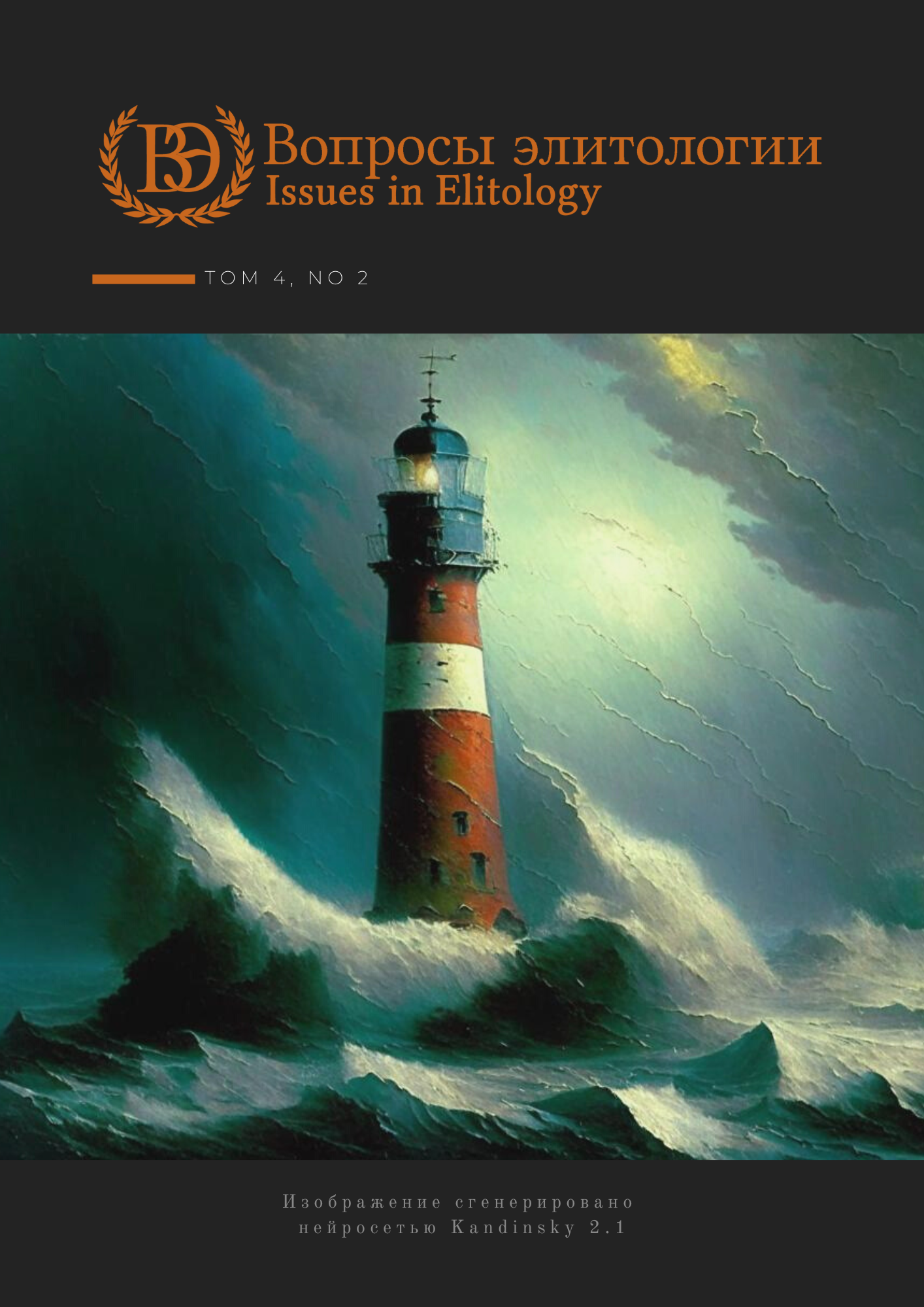Аннотация
Статья направлена на уточнение научных представлений о роли политических и административных элит в политике формирования идентичности городских агломераций. Изучение политики идентичности городских агломераций находится на этапе становления в современной науке. В статье выявлено влияние моделей управления городскими агломерациями на появление институциональных предпосылок для формирования идентичности агломераций. Охарактеризованы проблемы политического представительства в условиях развития агломераций. Установлено, что двухуровневая модель управления агломерациями создает предпосылки для противоборства интересов ядра и периферии агломерации. Принципиальные различия между ядром и периферией в обладании ресурсами объективно затрудняют задачу обеспечения сбалансированного представительства политических интересов в системе управления агломерациями. Особое внимание уделено рассмотрению кейсов агломераций Барселоны и Роттердама (Рейнмонда). Отсутствие в России двухуровневой модели управления агломерациями блокирует формирование административно-политических элит, локализованных на уровне агломераций. Отсутствие отдельных органов управления агломерациями может быть охарактеризовано как сдерживающий фактор, как для развития агломераций, так и для формирования идентичности агломераций.
Литература
Ahrend, R., Gamper, C. & Schumann, A. (2014). The OECD Metropolitan Governance Survey: A Quantitative Description of Governance Structures in large Urban Agglomerations. OECD Regional Development Working Papers. doi: 10.1787/5jz43zldh08pen.
Andersson, M. (2010). Metropolitan Governance Models. Common Institutional Approaches of Potential Relevance for Dar es Salaam. Discussion Paper. http://www.citiesalliance.org/sites/citiesalliance.org/files/CAFiles/Projects/Discussion_Paper_Metropolitan_Governance_Model.pdf.
De Angelis, G. (2021). Elites and Urban Communities in Early Medieval Italy. Identities, Political Initiatives, and Ways of (Self-) Representation. Civic Identity and Civic Participation in Late Antiquity and the Early Middle Ages. Ed. by C. Brélaz and E. Rose, Brepols, 391-416.
Erdem, M. (2017). The Role of Elites in the Formation of National Identities: The Case of Montenegro. USF Tampa Graduate Theses and Dissertations, 2017. http://www.digitalcommons.usf.edu/etd/7020
Galinovskaya, E.A. & Kichigin, N.V. (2020). Urban agglomeration as a legal category: problem statement. Journal of Russian Law, 8, 141-156. doi: 10.12737/jrl.2020.100 (in Russian).
Gelman, V.Y. (2003). Political Elites and Strategies of Regional Identity. Journal of Sociology and Social Anthropology, 2, 91-105. (in Russian).
Grishin, N.V. (2019). The state as an actor of identity construction policy. Caspian region: politics, economics, culture, 3, 66-72. doi: 10.21672/1818-510X-2019-60-3-066-072 (in Russian).
Grishin, N.V. (2020). The State Identity Policy: A New Bet in the Political Struggle? Tomsk State University Journal of Philosophy, Sociology and Political Science, 55, 231-239. doi: 10.17223/1998863X/55/23 (in Russian).
Helbling, M., Reeskens, T. & Wright, M. (2016). The mobilisation of identities: A study on the relationship between elite rhetoric and public opinion on national identity in developed democracies. Nations and Nationalism, Vol. 22, No. 4, 744-767. doi:10.1111/nana.12235
Khiangte, L. (2022). Elites in the process of Ethnic Identity Formation and Assertion: A study of Mizo Identity. Mizoram University.
Kolyasnikov, V.A. (2015). Development of the concept of "urban agglomeration". Academic Bulletin UralNIIproekt RAASN, 2, 10-15. (in Russian).
Kulakov, S.V. (2015). The political elite of the Tambov region as a suggestor of regional identity. Modern political processes, 1 (14), 76-81. (in Russian).
Lane, D. (2011). Identity Formation and Political Elites in the Post-Socialist States. Europe-Asia Studies, Vol. 63, No. 6, 925-934.
Nientied, P. (2018). Hybrid urban identity—the case of Rotterdam. Current Urban Studies, 6, 152–173. doi: 10.4236/cus.2018.61008.
Pavlov, Yu.V., Koroleva, E.N. & Evdokimov, N.N. (2019). Theoretical foundations for the formation of the urban agglomeration management system. Economics of the Region, 3, 834-850. doi: 10.17059/2019-3-16 (in Russian).
Pavlov, Yu.V., Koroleva, E.N. & Labzin, A.V. (2018). Governing bodies of an urban agglomeration: designing the composition and methods of formation. Bulletin of St. Petersburg University. Management, 4, 576–610. doi: 10.21638/11701/spbu08.2018.405 (in Russian).
Petersson, B. (2001). National Self-Images and Regional Identities in Russia. Aldershot: Ashgate.
Popova, O.V. (2020). On the unresolved problems of the theory of state policy of identity in Russian political science. Political Science, 4, 86-110. doi: 10.31249/poln/2020.04.05 (in Russian).
Popova, O.V. & Grishin, N.V. (2023). Political identity of Russian youth in self- and experts’ assessments. Political Science, 2, 140–162. doi:10.31249/full/2023.02.06
Strebel, M.A. (2022). Who supports metropolitan integration? Citizens’ perceptions of city-regional governance in Western Europe. West European Politics, Vol. 45, No 5, 1081-1106. doi: 10.1080/01402382.2021.1929688.
Vallbé, J., Magre, J. & Tomàs, M. (2018). Being metropolitan: The effects of individual and contextual factors on shaping metropolitan identity. Journal of Urban Affairs, Vol. 40, No 1, 13-30. doi: 10.1111/juaf.12243
Yermak, S. (2014). Ufa agglomeration: the formation of meaning. URL: https://expert-ural.com/articles/ufimskaya-aglomeraciya-formirovanie-smisla.html (in Russian).

Это произведение доступно по лицензии Creative Commons «Attribution» («Атрибуция») 4.0 Всемирная.


